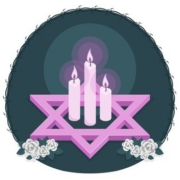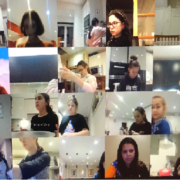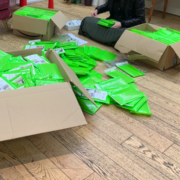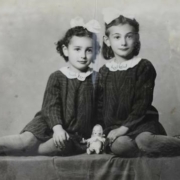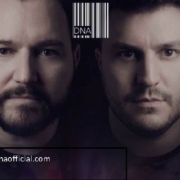It might have been virtual, but it was still a full Holocaust Remembrance Day at the Girls’ School thanks to Mrs Abecasis’ heroic efforts.
The opening ceremony saw Mr McClusky, Rabbi Golker and Mrs Brice share their thoughts, and Mrs Abecasis explained the theme of this year’s HRD: ‘Being a Light in the Darkness’. This was a particularly apt theme as we are living in an unprecedentedly dark time, where small acts of kindness bring light into people’s lives; whether this was volunteering for the NHS, setting up local support groups or simply phoning those who live alone.
Mrs Abecasis’ graphic and powerful opening presentation using Nazi propaganda film and clips of Holocaust deniers, as well as footage of the Tree of Life synagogue attack in 2018 to show that the darkness is still around us. However, she concluded, there is light in the form of those who risked their own lives to rescue Jews, such as Raoul Wallenberg, Irena Sendler, the heroes of the Warsaw Ghetto, and the Bielski brothers of Belorussia.
Mrs Brice reminded us that even though the Holocaust remains a blood soaked stain on the conscience of humanity, there is still persecution today and it is our responsibility to be a light for those who are suffering.
For Years 10-13, one of our Year 11 students, A Garren presented the story of Abraham Gutrejman, whose memoir she translated from Spanish to English. Her presentation was phenomenal, with a video clip of the Gutrejman family telling their story, and her own tracing of the Gutrejman story from the darkness of wartime Poland, to Munich, Bolivia and Costa Rica where Ariella met Frieda Gutrejman. One example for being a light was the way the Gutrejman brothers looked out for each other. Avraham carried the injured Yankel on his back; and when they were caught – and Avraham was made to dig his own grave – Yankel threw rocks to fool the soldiers into believing the partisans were on their way. Thus, the brothers saved each other. Later, in South America, Yankel never married to enable his brother, married to Frieda, to be able to support his family.
The History department created a workshop for Year 9, which covered different periods of darkness in history, showing that even in terrible times there were always those who provided ‘light.’ There the students studied the historical backdrop to the darkness, and learned about the darkness of other genocides in the 20th and 21st centuries. The light was the learning about the resistance movements and individuals, such as Sir Nicholas Winton and the White Rose students in Germany.
Years 7 and 8 had two workshop sessions. In one, the English Department looked at light in relation to the Holocaust, exploring Simon Wiesenthal who shed ‘light’ on the crimes of the Nazis after WW2. They also explained about the Children’s Memorial at Yad Vashem where memorial candles are reflected infinitely in a dark and somber space, creating the impression of millions of stars shining in the firmament. The names of murdered children, their ages and countries of origin can be heard in the background. Following on, the students brainstormed ideas about light to inspire their own poetry. They also discussed a poem by Holly Peters called ‘The Light of no Hope’, written especially for this year’s HRD.
In the second workshop, JS created a fourfold approach, which began by focusing on Jewish life before the war, and understanding the communities, families, and individuals that were lost. The next stage was to understand how the Jews felt trapped in Europe, focusing on W H Auden’s poem “Refugee Blues” and the paintings of Felix Nussbaum. After that, children’s Holocaust art was explored to try to understand why children would draw pictures of these experiences and how this was also a form of resistance. Finally, as a moment of ‘light’, the girls were taught about the efforts of Dayan Grunfeld and Rabbi Eliezer Silver in rescuing Jewish children who survived the war.
Years 10-13 were all invited to hear the keynote speaker: Mr Mark Weitzman, who is Director of Government Affairs for the Simon Wiesenthal Centre, among many other significant roles linked to Holocaust Education, Denial and Anti-Semitism. He lives in the US and attended via Zoom. He kindly agreed to answer questions from the students, which were sent in advance, as it was very early in the morning for him!
He gave a very detailed presentation, which highlighted current Holocaust denial and the side lining of the Holocaust. Drawing together the David Irving trial, the Charlottesville rally in August 2017 and legislation in Poland, Ukraine and Russia, he demonstrated that these omissions and denials must be noticed and acted upon in order that the Holocaust is never forgotten as an attack on Jews.
Thank you to Mrs Abecasis. Thank you to the Girls’ English, History and JS teams who created such exciting and engaging workshops for Years 7-9. This event was a light in itself, as we all sat in the glow of our laptops and safe homes to remember both the worst that humanity can do but also to expose the best of humanity.
The video of the presentation can be found here: https://hasmoneanmat.org.uk/hrd/

